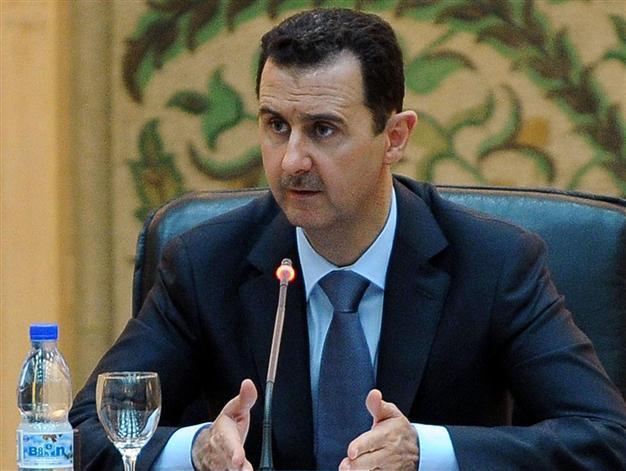Turkey, US officials in first operational meeting on Syria
ANKARA - Agence France- Presse

Hürriyet photo
Turkish and US officials Thursday began their first "operational planning" meeting aimed at bringing about the end of Syrian President Bashar al-Assad's embattled regime.The meeting is expected to coordinate military, intelligence and political responses to the crisis in Syria where a deadly crackdown on peaceful protests that began in March 2011 has according to activists claimed more than 23,000 lives.
The officials are also due to discuss contingency plans in the case of potential threats including a chemical attack by Assad's regime which Washington has said would be a "red line".
Turkish foreign ministry deputy under-secretary Halit Çevik and US ambassador Elisabeth Jones are leading the delegations made up of intelligence agents, military officials and diplomats at the Ankara meeting, a foreign ministry source told AFP.
The meeting began at 0800 GMT and it was not immediately clear if a press statement would be issued after the closed-door talks.
US Secretary of State Hillary Clinton and Turkey's Foreign Minister Ahmet Davutoğlu had announced their plans for such a mechanism to hasten the end of President Bashar al-Assad's regime on August 11.
Thursday's meeting come just days after US President Barack Obama warned Syria that any movement or usage of its chemical weapons would be a "red line" that would change his perspective on how to respond to the conflict.
A chemical attack would also trigger a refugee influx to neighbouring countries including Turkey which is already hosting more than 70,000 Syrians.
On Monday, Davutoğlu said Turkey can handle no more than 100,000 Syrian refugees and has proposed setting up a UN buffer zone inside Syria to shelter them.
The growing flow of refugees amid fierce fighting in the northern city of Aleppo between regime forces and rebels has raised fears of a repeat of the 1991 Gulf War, when half a million Iraqi Kurds massed along the common border.
The UN Security Council will debate the humanitarian situation and the refugee crisis in Syria on August 30 at a ministerial level meeting.
UN emergency relief coordinator Valerie Amos said Wednesday however that despite the increasingly precarious humanitarian situation, UN Security Council divisions would prevent the creation of any safe havens in Syria.
The Security Council has failed to act decisively to try to end the Syrian conflict, hampered by rifts between the West and Syria's traditional allies China and Russia, particularly over Assad's fate.
The threat of armed groups including the outlawed Kurdistan Workers' Party (PKK) and Al-Qaeda which could exploit a power vacuum in Syria is also expected to figure high on the agenda of the Ankara meeting.
In Istanbul, Clinton had said she shared "Turkey's determination that Syria must not become a haven for PKK terrorists whether now or after the departure of the Assad regime."
















